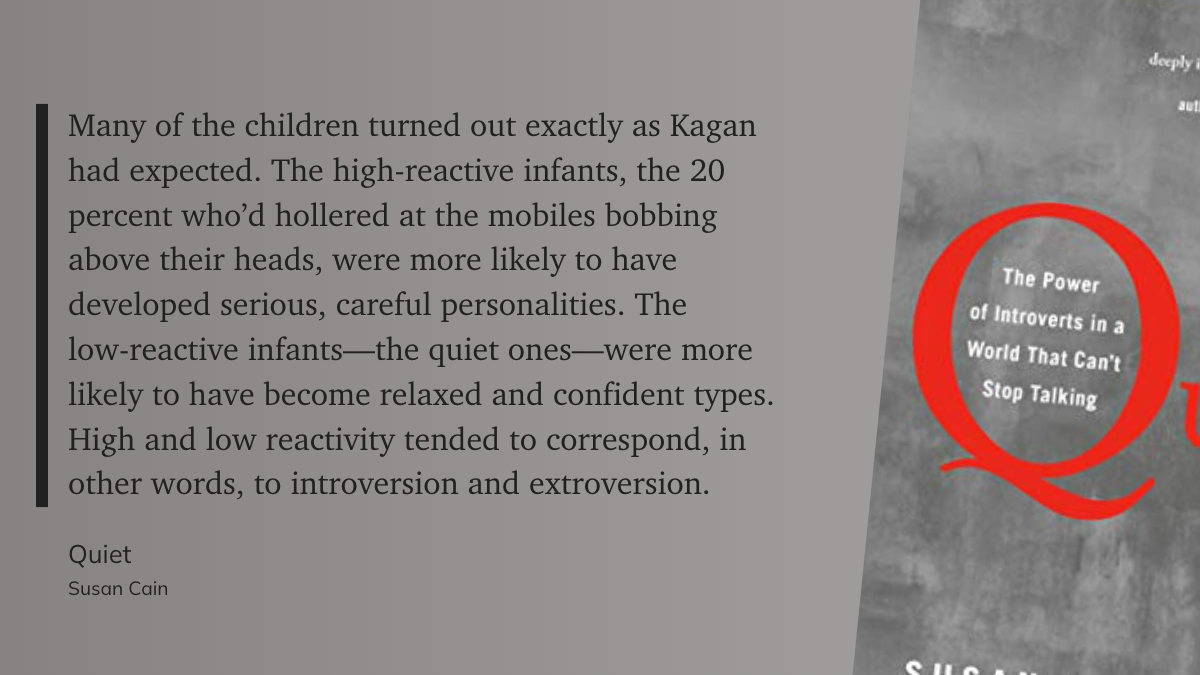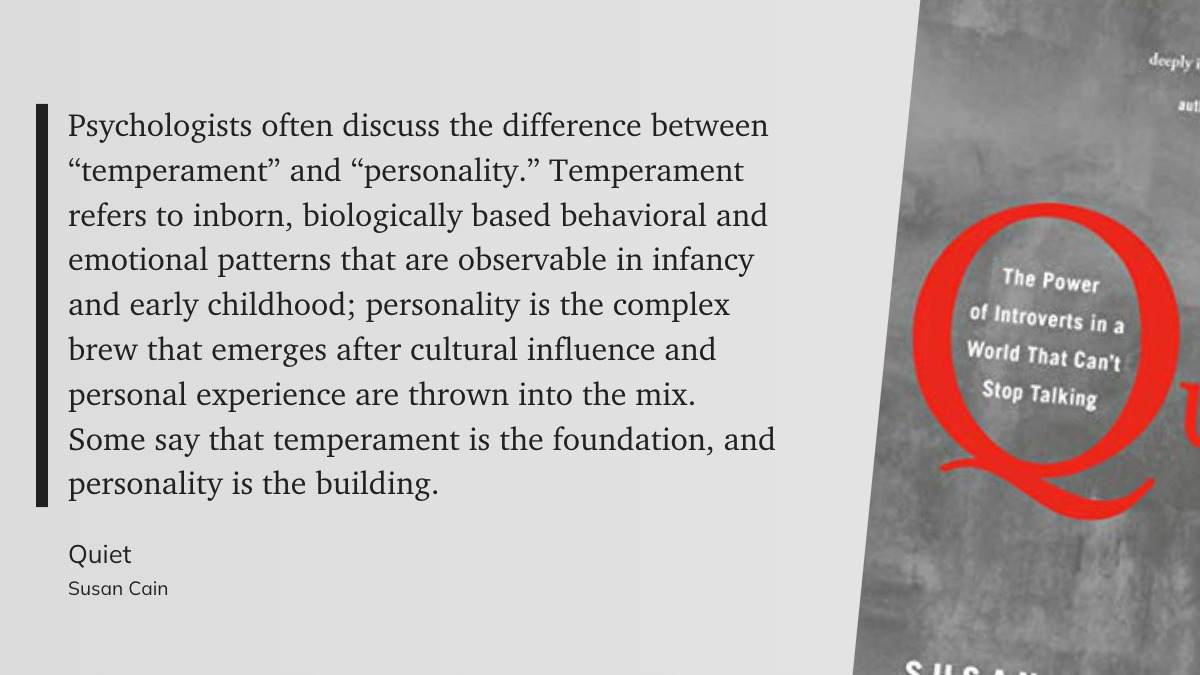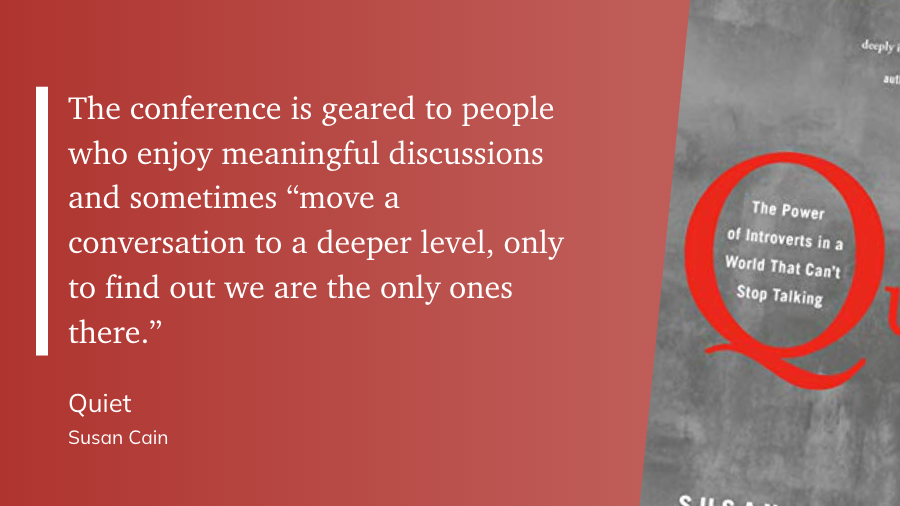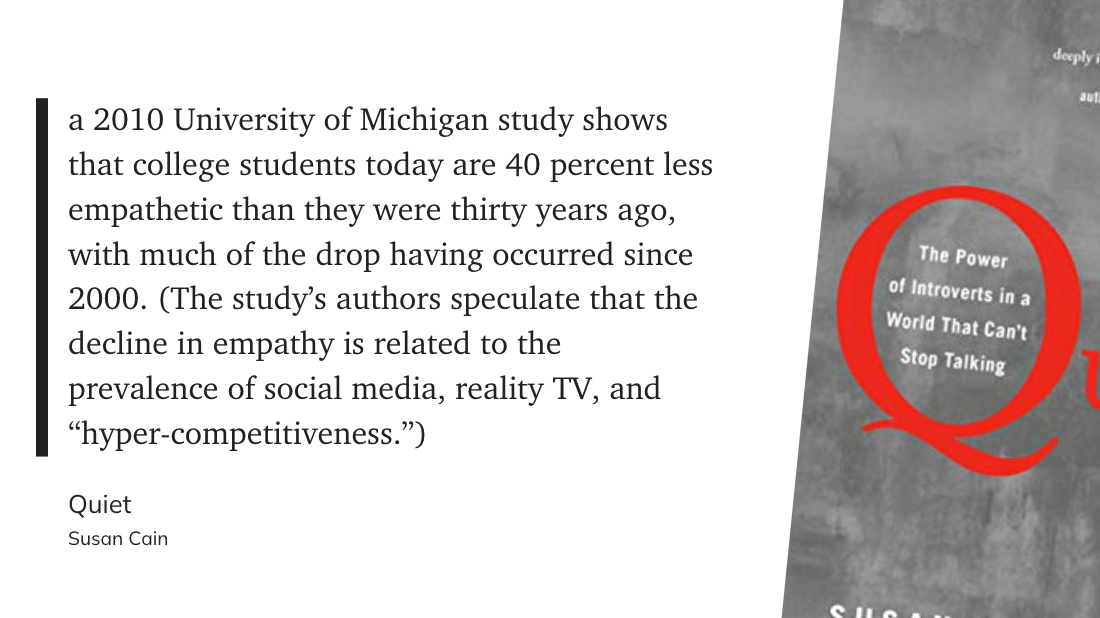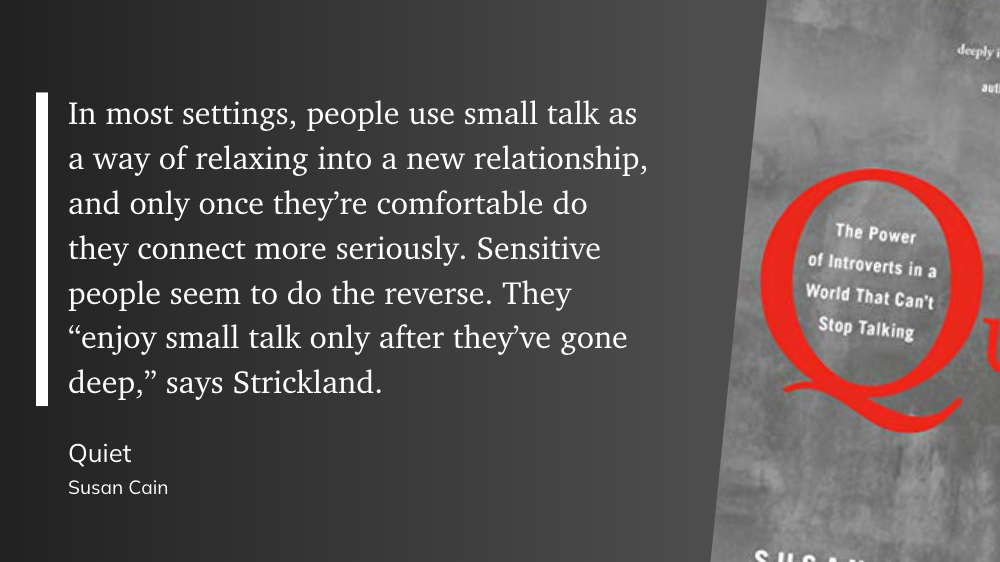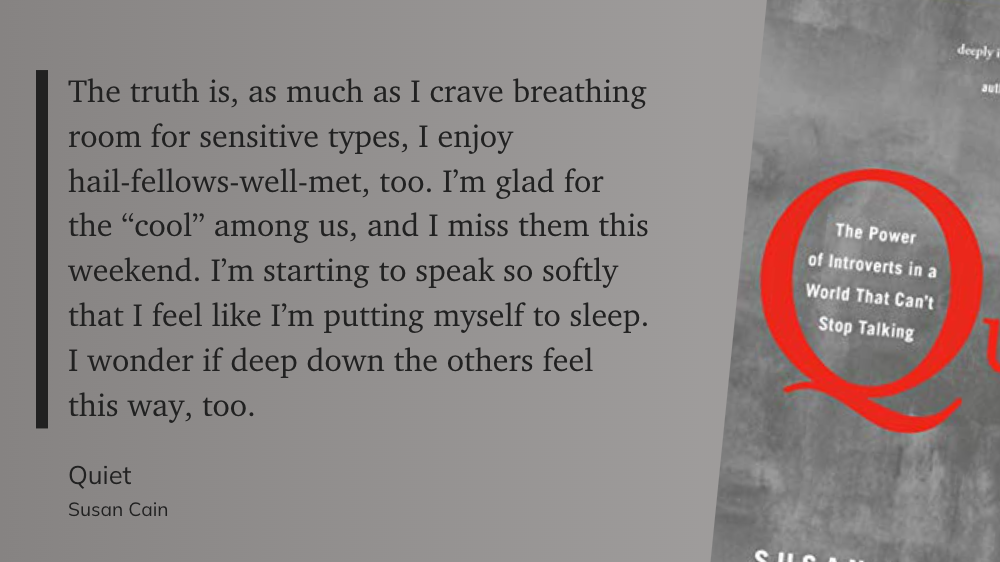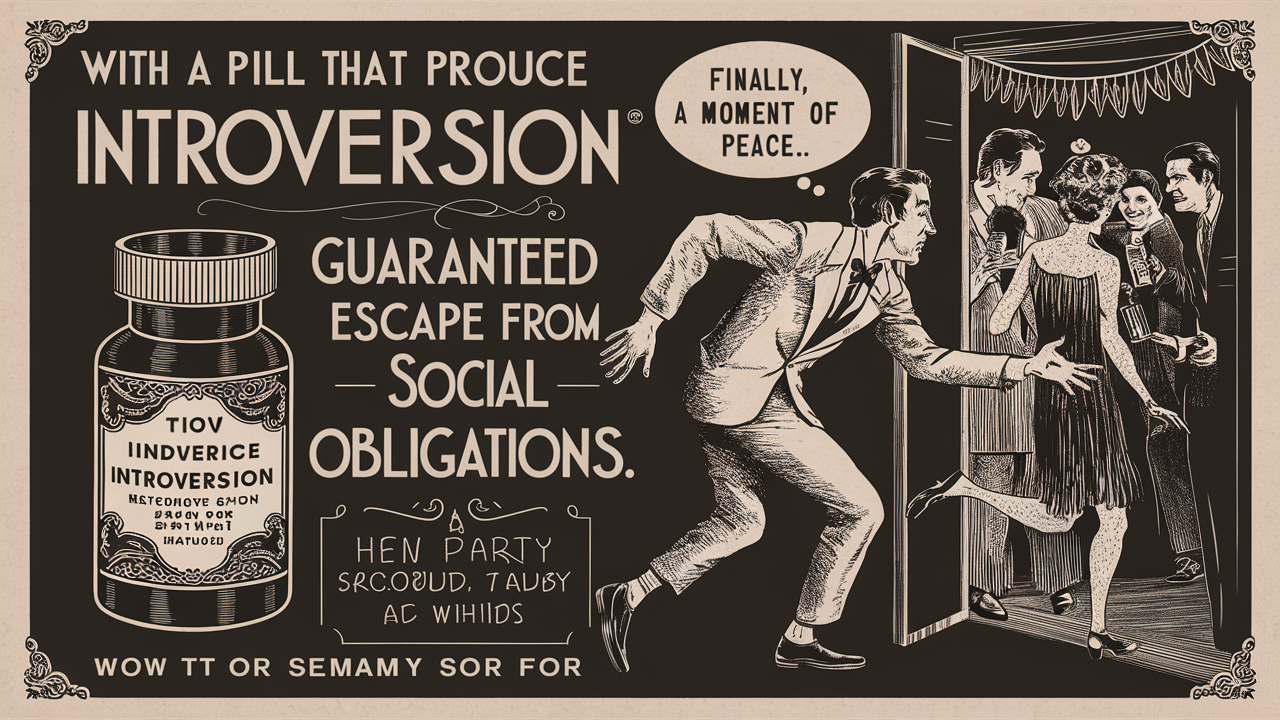I've had a busy few days so haven't had the chance to write any thoughts. This particular post is, it turns out, over a week 'late' (behind the schedule of the book club I'm part of).
Last week, when our book club convenor Maneet would normally have posted his thoughts and posed a question to the group, he instead shared that he'd been travelling and did not have the time to finish his planned reading and thus wasn't able to share that week's post. I read this as meaning that he would shift the timeline back by a week and we'd still get all the content as normal – but he instead seems to have skipped week three and gone straight on to week four, which means that I'll post my own thoughts on the chapters from Susan Cain's Quiet without his discussion and hopefully catch up to week four in the next few days.
Temperament and High Reactivity (Raw Notes)
I really enjoyed learning about the difference between temperament and personality. Temperament has been seen as something innate, something one is born with, while personality is not predetermined at birth but grows over time. Temperament is the nature side and personality is the nurture side of the old nature/nurture classification. I have always felt that many things are combinations of nature and nurture, and the discussion on temperament here gives me some depth to that line of thinking.
One interesting result was about reactivity in children. Children who were 'highly reactive' would respond strongly to stimuli and would often grow up to be introverted. Cain said that this hypothesis was 'startingly counterintuitive', but for me, it was exactly what I expected. Encountering new stimuli would naturally be more costly for people who have stronger reactions, and for those who had weaker reactions, they would be able to handle more novelty and may even seek it out.
At one point while reading, I thought that this meant that introversion and extroversion were not in our control – but like most things, the picture isn't quite this simple. Nevertheless, we do have a temperament that hugely influences whether we will become introverted or extroverted and it is literally more costly and higher effort for those with highly reactive temperaments (based on something out of their control, i.e., the makeup/behaviour of their amygdala). While we can develop some level of ability to reason our way out of it (which is where other parts of the brain come in), it is unalterably harder for the highly reactive person to encounter certain stimuli.
Feeling Guilty
Another interesting result, and one I personally deeply connect with, was around how highly reactive children tend to feel guilt more deeply than others. I have long felt I carried a deeper sense of guilt and shame than I've observed in some of my peers.
Just-So Stories
The introvert's reaction to public speaking was one of Cain's main points in these chapters, but I haven't focused on it much because it isn't a topic that interests me. However, one part of the discussion on this covered a topic I've recently been thinking a lot about but never had a name for. I described the phenomenon to ChatGPT (using the gpt-4o model) and it told me that these are called 'just-so stories'.
[Sociobiologist E. O. Wilson] holds that when our ancestors lived on the savannah, being watched intently meant only one thing: a wild animal was stalking us. And when we think we're about to be eaten, do we stand tall and hold forth confidently? No. We Run.
Cain is talking about a hypothesis put forward by Wilson to explain why public speaking is such a frightening activity, but I find it quite a ridiculous explanation. I'm not a sociobiologist, I'm not anything really, so perhaps I am the wrong person to assess this explanation. Nevertheless, I think this explanation falls apart because I wouldn't have the same fear of speaking publicly to a room full of cats or elephants – so to me, the fear must be based on a social rather than a physical threat. The fear in public speaking comes from making a fool of oneself in front of other people, not of being eaten by a wild animal.

Dictionary of Christianity and Science (Copan et al., 2017)
The term just-so story is a pejorative label often used by scientists when critiquing a scientific hypothesis as lacking a concrete, testable, evidential basis or strong explanatory power. Rather, 'just-so stories' are typically viewed as relying on mere speculation or storytelling, providing only a veneer of explanation.
I would say that this quote accurately reflects my current view on these 'just-so stories' (it's so exciting to finally have a label for this!).
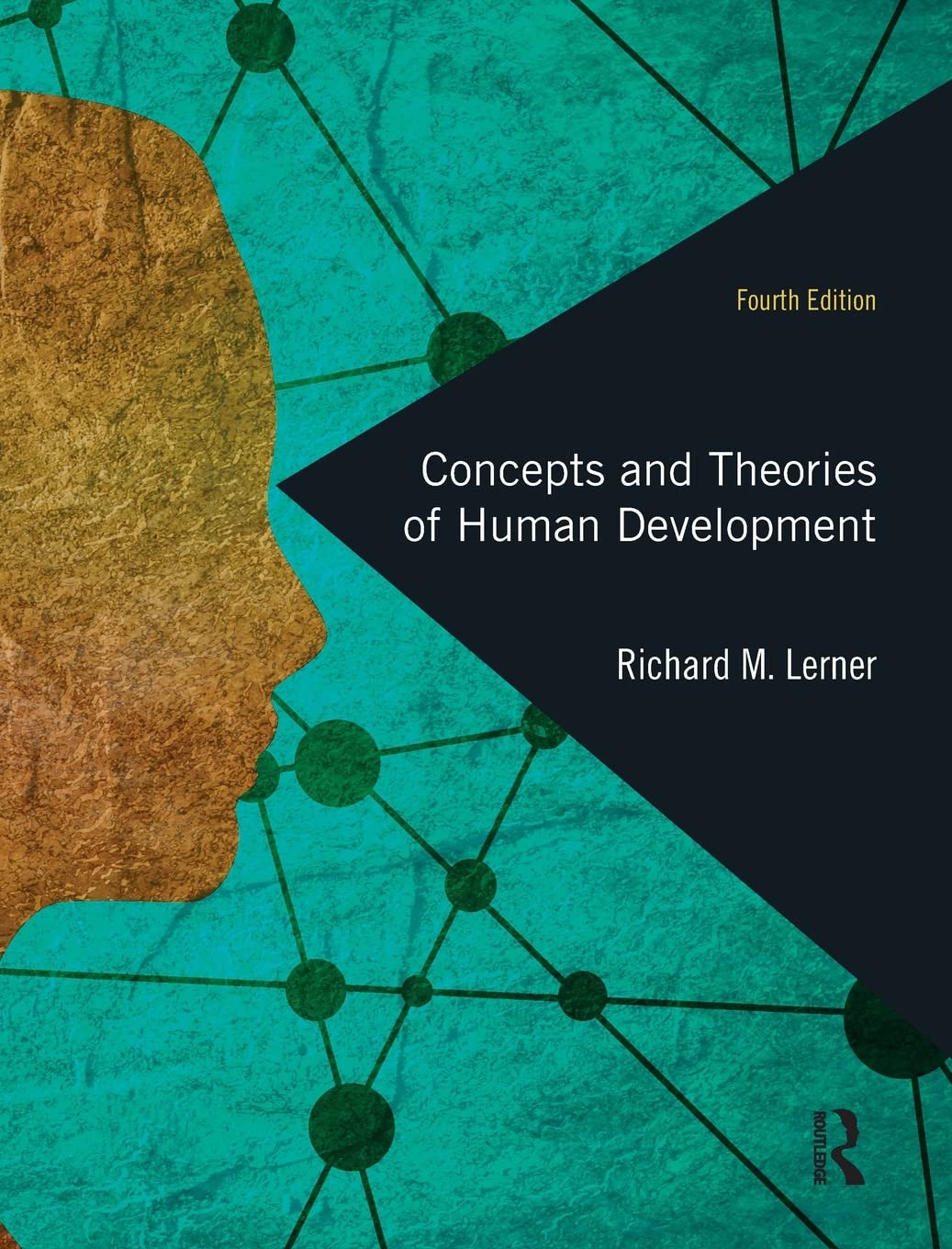
Concepts and Theories of Human Development (Lerner, 2018)
In the quote above, Lerner is referring to Gould's 1980 paper The Spandrels of San Marco and the Panglossian Paradigm. According to the Wikipedia page for this paper, it has been described as 'among the best known and most factious [relating or inclined to dissension] papers in evolutionary biology in the past 50 years'. I am extremely poorly versed in the literature on every topic, but I have somehow stumbled upon one of the great divides in this field. There was even a book, Understanding Scientific Prose (Selzer 1993) that discussed the paper including many different perspectives and responses.
We fault the adaptationist programme for its failure to distinguish current utility from reasons for origin (male tyrannosaurs may have used their diminutive front legs to titillate female partners, but this will not explain why they got so small); for its unwillingness to consider alternatives to adaptive stories; for its reliance upon plausibility alone as a criterion for accepting speculative tales; and for its failure to consider adequately such competing themes as random fixation of alleles, production of nonadaptive structures by developmental correlation with selected features (allometry, pleiotropy, material compensation, mechanically forced correlation), the separability of adaptation and selection, multiple adaptive peaks, and current utility as an epiphenomenon of nonadaptive structures. (Gould, 1980, p. 1)
This idea that these stories can be assessed by 'plausibility alone' is probably my major issue with the 'adaptationist programme'. I asked gpt-4o to describe this quote in simple language, and I agree with every point:
- Mixes up uses and origins
The authors say that just because a trait is useful now doesn't mean that's why it originally evolved. - Ignores other ideas
The authors argue that the adaptationist viewpoint often ignores other possible explanations for why traits exist. - Relying on stories
The authors point out that adaptationists often accept explanations that sound believable without enough evidence. - Missing other factors
The authors believe that adaptationists don't consider other important factors like random genetic changes, traits that develop together with others, and the idea that some useful traits might just be side effects of non-useful ones.
I'll undoubtedly come back to this topic as I learn more because I am so fascinated by it.
Affairs 😪
In chapter six, the author recounts the story of Eleanor Roosevelt and her husband Franklin. One part of the story that I thought I would comment on briefly is how Franklin had a long-term affair with Eleanor's social secretary. I hated reading about this and found myself wondering why so many stories had to have such a component. Why is it that so many influential and otherwise honourable people have affairs? I'm thinking of people like Martin Luther King Jr., Nelson Mandela, Mahatma Gandhi, Albert Einstein, and King David. Of course, I am aware of my own shortcomings and would not want to be discounted because I've made terrible mistakes, but why must this mistake of infidelity be so common, especially among courageous individuals who don't seem to take the easy way out? It's a challenge for me to understand.
That's all from me today.
Key Quotes
